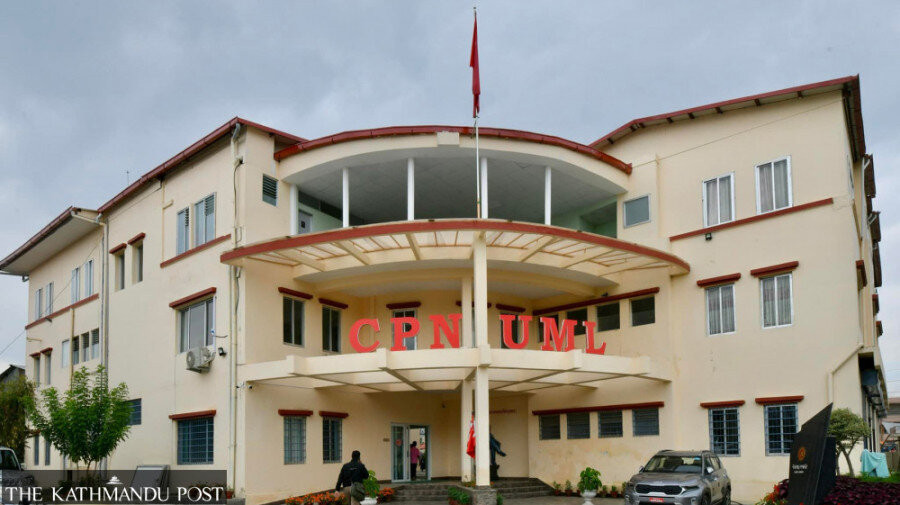Politics
UML plan to trace voters’ political tilt raises eyebrows
The fear is that the survey may intimidate voters and infringe on individual privacy.
Binod Ghimire
The next general elections are three years away, but political parties have already started devising strategies to secure victory.
While all major parties are discussing ‘mission 84’ (election year 2084 BS, or 2027 AD), the CPN-UML is ahead of others in formulating strategies as much as it plans to collect private information on individual voters. In a bid to assess its strength, the ruling party has decided to find out the political affiliation of each voter.
The country's second-largest party will send its volunteers to each household to find out the political leanings of the members. “Our local cadres know who our sympathisers are and who is associated with other parties. The study aims to find out the political inclination of those whose affiliations are not known,” Bishal Bhattarai, a UML politburo member and member of the party’s Organisation Department, told the Post.
Such study has already started in local units where byelections are being held next month. The voting is taking place for 44 positions including mayors and chiefs of rural municipalities in 33 local units across the seven provinces on December 1. The seats had turned vacant due to deaths and resignations, and other reasons.
The party plans to conduct the nationwide study for two months, from mid-February to mid-April next year. As per the schedule, the party’s central office will receive the reports from the local level by the end of the current fiscal year—mid-July.
Party leaders claim the survey is for the party’s internal purposes to evaluate its strengths. “Based on the report, the party will devise its strategy to strengthen its positions wherever it is weak. Such surveys are done in other countries as well,” Rajendra Gautam, publicity department chief of the party, told the Post.
However, political experts don’t think the matter is as simple as the UML is trying to project. Krishna Khanal, professor of political science, said in principle there is nothing wrong with conducting surveys to collect information to devise strategies to mobilise party. “However, in a country like ours where the government’s treatment of people often depends upon their party affiliation, the ruling party studying the common people’s political affiliation is a serious matter. It will not only intimidate ordinary people, but also raises concerns that state machinery could be misused to bring neutral voters into the UML’s camp,” he told the Post.
Some political analysts see this move as an intrusion into personal matters. Uddhab Pyakurel, who teaches political sociology at Kathmandu University, collecting information of individual party affiliation is not an acceptable act in democracy. “The UML is trying to adopt a radical communist strategy. The Communist Party of India (Marxist) applied a similar strategy to remain in power for long,” he told the Post.
Not just the radical communists but right wing forces in India too are embracing a similar strategy to turn election results in their favour. During every election, from the municipal to Lok Sabha, India’s Bharatiya Janata Party appoints panna pramukhs (unit incharges), who are tasked with influencing voters at the household level.
Every constituency is divided into blocks, with lists of voters from every 10 to 12 families. And a person called panna pramukh is assigned to pay special attention to the families of his/her designated area. Their job is to convince them to vote for the party. This strategy seems to have worked for the right-wing party, which won the elections for the third consecutive time in June.
“It is not surprising to see that extremists, no matter whether they are right wing or left wing, adopt similar strategies,” said Pyakurel.
The UML, which has seen a decline in the number of its organised cadres, wants to increase their numbers to at least one million which hovers around half that figure at present. It believes it can devise policy to increase its vote base based on the survey results. In the 2022 general elections, the country had 17.79 million registered voters.
Pyakurel, however, doesn’t believe that the UML’s initiative is going to benefit it hugely during the elections. If his claims are anything to go by, swing voters have a significant share in Nepal and no single strategy by the UML is likely to guarantee results in the next general elections.
Nepal is the country where pre-poll surveys are illegal although they are practiced elsewhere in the world. However, there is no restriction on a ruling party gathering information on people’s political affiliations. “The Election Commission must come forward to stop the UML’s move,” said Khanal, the professor.
The UML leaders, however, say there is no need to ‘make a mountain out of a molehill’. “This is just the party’s internal survey. We are sensitive enough to individual freedom and the right to privacy,” said Bhattarai.




 11.12°C Kathmandu
11.12°C Kathmandu















